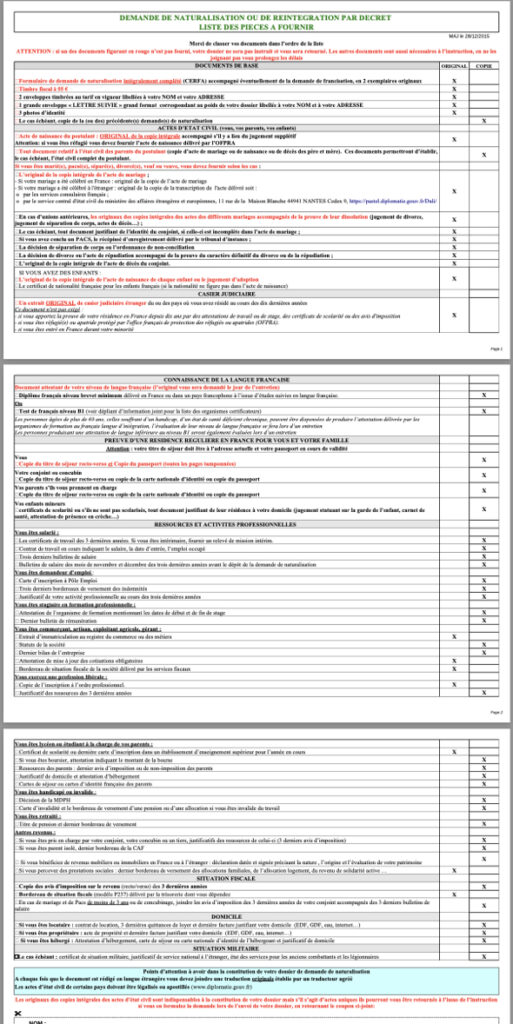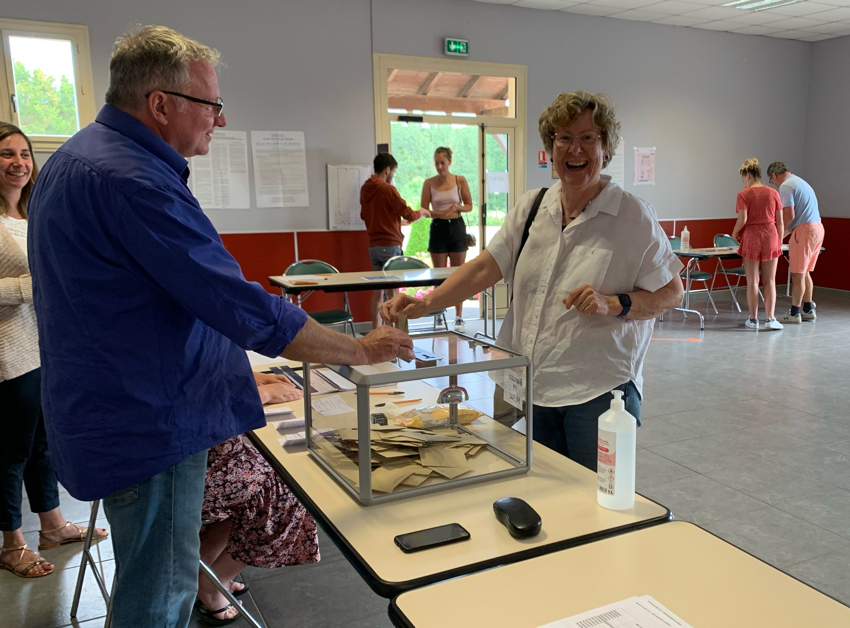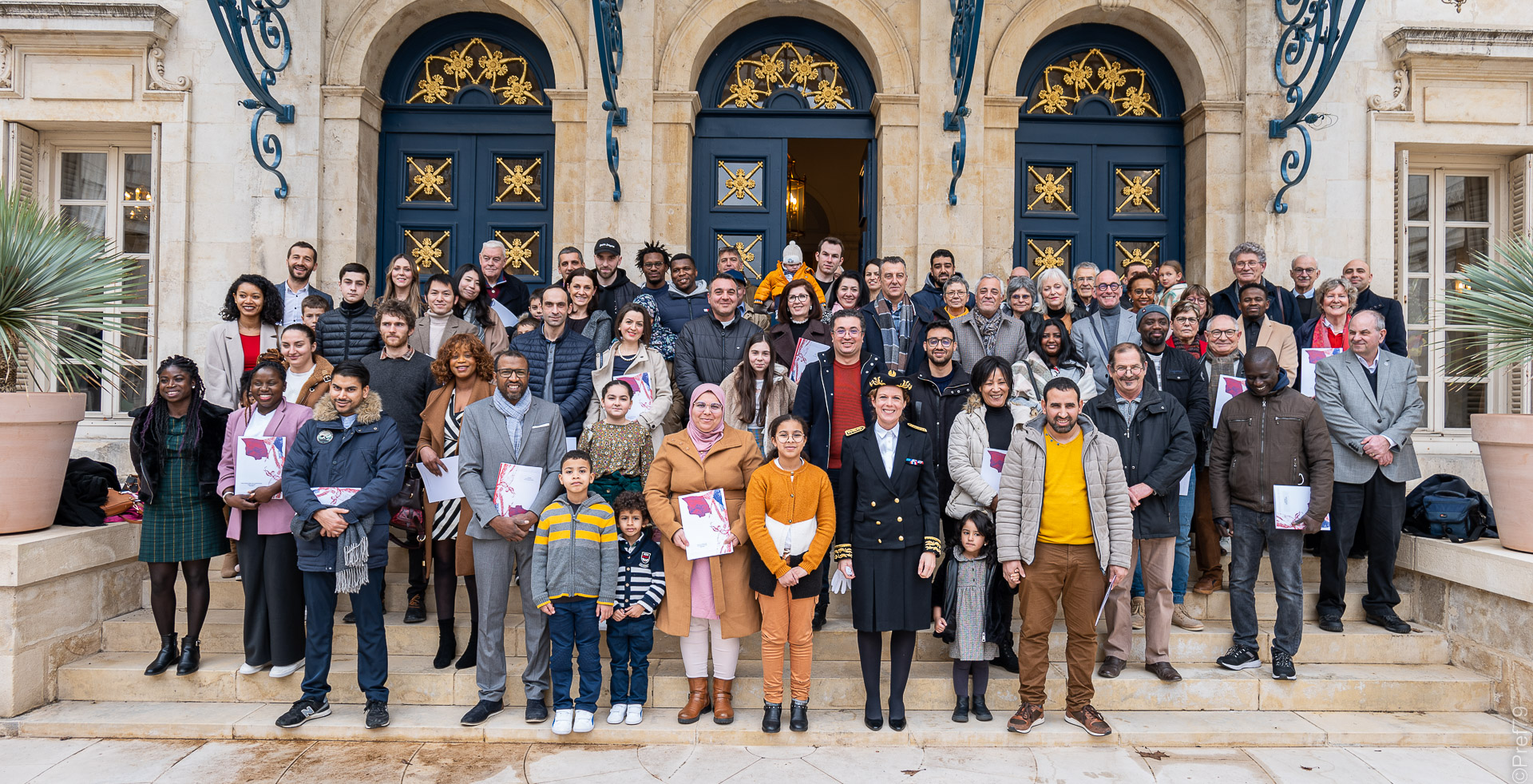In November 2019, I applied for French nationality.
On 14 April 2022, I had an official email informing me I had achieved it.
Last week, on 1 February 2023, I participated in an official ceremony and handed a sheaf of documents.
So, it has been a long road.
Why?
Ah, that’s the question they ask you at the interview (I explain that below.) I’ve been going to France since I was seven and armed with a few words, I managed to play and interact with French kids. I later studied and worked in France. My first degree was in modern languages and economics. And I’ve loved Astérix le Gaulois since I was nine.
More seriously, I feel at home here. We moved permanently to France in 2010 having bought a house here in 2005, and haven’t looked back. Speaking French is as natural to me as English and I do rather like the direct French way of expressing themselves.
We were perfectly settled, digging ourselves in locally, including voting in local and European elections. I was writing books, hopping back and forth to the UK for launches and events with the greatest of ease. Life was beautiful.
I did think about becoming French then, but where was the need?
Then along came Brexit and the need for registration as ‘foreigners’ as the politicos argued and wrangled about the conditions for exiting the European Union. This was a nightmare for many people, especially those not used to dealing with officialdom. I wrote a long post about it in August 2018 which reflected people’s anger, confusion and anxiety. The upshot of no longer being Europeans? We became guests in our own home town. We lost our right to vote; some friends of working age lost their job security; others were turfed off their local council where they had served their communities for years.
This was the final push for me. The right to vote is extremely important. People died for it.
So what did it involve?
Draw up a chair, get a coffee or tea and set some time aside. As a precursor, you have to show you’ve had the right of residency for 5 years. Then start assembling a mountain of documents…
Next, I had to foster a close relationship with the UK General Registrar to obtain new birth and marriage documents for me, my parents, husband, son, husband’s family, then commission an official translator for each document. Luckily, I knew the perfect person who worked for me when I ran my translation company, Marie-Noël Générau who is highly recommended. This is not cheap.
Unless you have a really good excuse, you have to produce a certificate that you have passed an exam in functional French. Then there’s proving you have enough money to live on, whatever the source, you have a stable homelife, you’ve paid your taxes for the past five years, etc. etc. All this requires documentary proof. Oh, yes, and you pay a fee of 55 euros.
So you send it all off (November 2019) and you wait… The paperwork would be processed at department level, then sent to the Ministry of the Interior in Paris so they can check that you really are who you say you are and you are not a master criminal pursued across five continents. The next step, I was informed, was the nationality interview in 6-12 months’ time.
Then the world is struck by a pandemic. Everything grinds to a halt. We are locked down. I keep writing books to distract myself. As France and the UK both allow dual nationality, I wrote the Mélisende thrillers featuring a heroine who was a dual national, perhaps unconsciously reflecting the state of my mind.
I’m still waiting when we come out of le confinement stricte. But let’s be fair – masks, gel and vaccinations rather occupied most people’s lives at that time. Governments were starting to put their countries back on their feet and dealing with the new normal.
In late June 2021, I ran across our local deputé, equivalent of member of parliament, at the AGM of an association I belong to. I mentioned my situation to him and within a few days had a formal appointment with his chief assistant. He contacted the préfet (chief government representative in my department) and, quelle surprise, under a month later, I received a letter from the préfecture calling me to my nationality interview four weeks later.
There followed an intense period of revision of the Livret du Citoyen, the basic stuff every French person needs to know about liberté, égalité, fraternité, (not forgetting laïcité). Now, I have a fairly reasonable grasp of French history, but I sat there every evening after work reading and making copious notes. From a Facebook group, ‘Applying for French Nationality’, I received loads of hints and tips about the interview, including knowing rivers, mountains, naming cabinet ministers, books, films, local cuisine, current affairs, plus being able to talk about an event in history. Being me, I picked the clash between Syriagus, the last Roman ruler in Gaul and Clovis, leader of the Franks. The interviewer said it made a very welcome change from the Revolution. Phew!
Anyway, it all went well and in April 2022, I received an email…
“J’ai le plaisir de vous informer que vous avez acquis la nationalité française depuis le 14/04/2022 00:00:00 .
Votre nom est inscrit dans le décret n°012/1146 portant naturalisation et réintégration, signé à cette date et publié au Journal officiel du 17/04/2022 00:00:00 “.
Yippee!
The next day I went online to apply for my voting card. I’d missed the presidential elctions, but I voted for the legislative one for members of the Assemblée Nationale. With a bit of pushing and shoving (Bureaucratie is a French word, after all.), I received it and voted!
Next came national identity card and passport applications and the inevitable interview with an appointment with the green fingerprint machine. Luckily, I could book this appointment online and do this at my local mairie. The new passport arrived in time for my trip back to the UK at Christmas.
But I hadn’t had my cérémonie d’accueil dans la citoyenneté française – the formal presentation of your certificate and family documents. It’s not strictly necessary, but after the time taken to get there, who wants to miss it? I couldn’t make the original date as I was in York at the Eboracum Roman Festival. There’s some sort of irony there as France, or Gallia, was a key Roman province. Anyway, on Wednesday 1 February, I went to the préfécture in Niort with forty or so others and their families and friends. Smiles were the order of the day.
It’s the end of a rather long road. You need the persistence of a professional author, the organisational skills of a true paper-shuffler and the patience of Job. But enfin, je suis française!
Alison Morton is the author of Roma Nova thrillers – INCEPTIO, CARINA (novella), PERFIDITAS, SUCCESSIO, AURELIA, NEXUS (novella), INSURRECTIO and RETALIO, and ROMA NOVA EXTRA, a collection of short stories. Audiobooks are available for four of the series.Double Identity, a contemporary conspiracy, starts a new series of thrillers. JULIA PRIMA, a new Roma Nova story set in the late 4th century, is now out.
Find out more about Roma Nova, its origins, stories and heroines and taste world the latest contemporary thriller Double Identity… Download ‘Welcome to Alison Morton’s Thriller Worlds’, a FREE eBook, as a thank you gift when you sign up to Alison’s monthly email update. You’ll also be among the first to know about news and book progress before everybody else, and take part in giveaways.

















Félicitations, Alison! Un bon résultat!
Merci, Jacquie! A bit of an endurance trail, but I’m very happy to have reached the end.
Congratulation, and thanks for a great blog post, Alison!
Félicitations. Française, enfin. And I’ve learned something from your blog. I didn’t know there was a female form of préfet. Now I do.
My dictionary says that préfète = femme du préfet!!
[…] So I consulted someone who ought to know, someone whose French is a great deal more fluent and up-to-date than mine: Alison Morton, author of the Roma Nova series and, since April last year, also a proud French citizen. […]